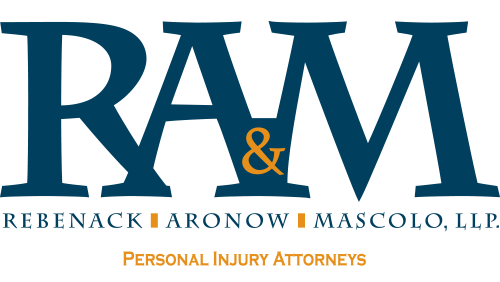Trucking Carrier Liability When Companies Claim Drivers Are Independent Contractors
When truckers are involved in roadway accidents in New Jersey, the trucking carriers often try to avoid employer liability by claiming their drivers are independent contractors and passing the responisibility to independent truck driver liability. An estimated 85% of the truck drivers who serve the ports of New Jersey and New York are classified as independent contractors. This work status can complicate matters for crash victims who want to file personal injury claims.
The Importance of Independent Truck Driver Liability in Truck Accidents
When a truck driver is at fault in a serious accident in New Jersey, the injured victim can file a claim for damages. If the driver is employed by a trucking carrier, the employer may also be responsible for paying damages under a legal principle called respondeat superior. This is a Latin phrase that translates as “let the master answer for the servant.” Since employers benefit from the work of their employees, they are also held to be responsible for the negligent actions of their employees when they are working within the course and scope of their jobs. Under trucking law, this type of vicarious liability means that trucking companies are liable when their drivers negligently cause accidents in which others are seriously injured or killed.
The liability determination in trucking accidents is important to ensure that the victims identify all of the parties that are potentially liable so that they can recover damages in an amount that will fairly compensate them for their losses. Truck drivers may not have the financial resources to cover the losses that victims might suffer from serious truck accidents. By contrast, trucking carriers are required to carry liability insurance with high policy limits. According to the Federal Motor Carrier Safety Administration, commercial trucks that weigh more than 10,001 pounds must have a minimum amount of liability coverage that ranges from $750,000 to $5,000,000, depending on the type of freight that they carry. If the carriers can be held vicariously liable, the plaintiffs are much more likely to recover fair compensation for their economic and non-economic losses.
To avoid potential liability and skirt labor laws, many trucking companies in New Jersey classify their drivers as independent contractors. When someone is severely injured in an accident with a large truck, the company may argue that the driver was an independent contractor, meaning that the company is not liable to pay damages. This argument will not necessarily be successful, however. It is possible to counter the defense by presenting specific types of evidence.
Trucks Used in Interstate Transport
When trucks are used in interstate commerce to transport goods, the drivers are considered to be employees regardless of how the trucking carriers might try to classify them. Under 49 C.F.R. § 390.5 of federal law, the drivers of all trucks that are used across state lines are considered to be employees of their companies. This means that if the truck that caused the accident was used to transport goods into New Jersey from a different state, the driver will be considered to be an employee for liability purposes regardless of how the company attempts to misclassify him or her as an independent contractor. If the truck is only used for intrastate transport, it is still possible to challenge the classification of the truck driver as an independent contractor by presenting evidence about several different relevant factors.

Distinctions Between Employee Truck Driver and Independent Truck Driver Liability
When trucks are only used in intrastate transport, which means they transport goods between locations within the same state, the federal regulations do not apply. If a truck driver causes a serious injury or fatality accident in an intrastate transport, the trucking carrier may have a stronger independent contractor defense. This is because trucking companies are not liable for the actions of independent contractors since they are not employees. However, courts do not take a driver’s classification as an independent contractor at face value. Instead, the courts consider several factors when they determine whether to treat the drivers as independent contractors or employees. A driver may be deemed an employee if:
- The company controls when and where the drivers operate their trucks.
- The driver exclusively works for the company or works for multiple clients.
- The company and the driver have a contract with employee-like terms.
- The company uses the independent contractor status as a shield against liability when the driver carries out all of the functions and duties of employees.
- The company carries the liability insurance.
The plaintiffs can present evidence about each of these factors to show that the drivers do not function as independent contractors and should be considered to be employees for liability purposes. For example, if the drivers are required to work set hours for the company and must follow company routes, they might be considered employees. Similarly, when drivers work exclusively for one company and do not have other clients, they might also be considered to be employees instead of independent contractors.
Why Establishing an Employee-Employer Relationship Is Important
Under trucking law, establishing an employee-employer relationship between a truck driver and the employer is important for several reasons. Trucking companies are required to carry insurance with high liability limits. While drivers are also required to carry insurance, they might let their policies lapse. Beyond the insurance, trucking companies generally have far greater resources to pay damages in lawsuits. Trucking accidents often cause catastrophic injuries or fatalities that cause substantial economic and non-economic losses. When the plaintiffs can hold the trucking carriers vicariously liable for the actions of their drivers, they’ll be more likely to recover enough compensation to cover all of their losses.
Trucking Carrier Negligence and Independent Truck Driver Liability
It is possible to hold a trucking carrier liable even when a driver was correctly classified as an independent contractor. This can occur when the company itself was negligent and the company’s negligence was a direct or proximate cause of the accident. Companies may be directly liable when they negligently hire, retain, or supervise drivers who are unfit or incompetent to drive. For example, if a company hires a driver who has a history of DUI convictions and license suspensions or retains a driver after learning of his or her unfitness, it can be liable if the driver subsequently causes a serious accident.
A company may also be found to be liable if it negligently supervises a driver. This might occur if it fails to make drivers stop driving when they have exceeded the allowed hours of service or if inadequate training is provided. Finally, carriers are responsible for maintaining their trucks and repairing them. If a company negligently fails to maintain, inspect, and repair a truck, it may be liable if an accident occurs due to this failure. For example, a company might be liable if a worn tire blows out, causing the trucker to lose control and collide into a passenger vehicle.
Get Help From RAM Law
Suffering catastrophic injuries in a truck accident can be devastating and permanently alter the course of your life. If the trucking company tries to claim that it is not responsible because the driver was not an employee, you might be able to overcome this argument. With legal assistance, you could hold the company liable for its negligence and the negligence of the driver. Reach out to RAM Law to schedule a free consultation. Call our office in New Brunswick at (732) 247-3600 or our office in Somerville at (908) 448-2560. You can also email us at contact@ram.law.


